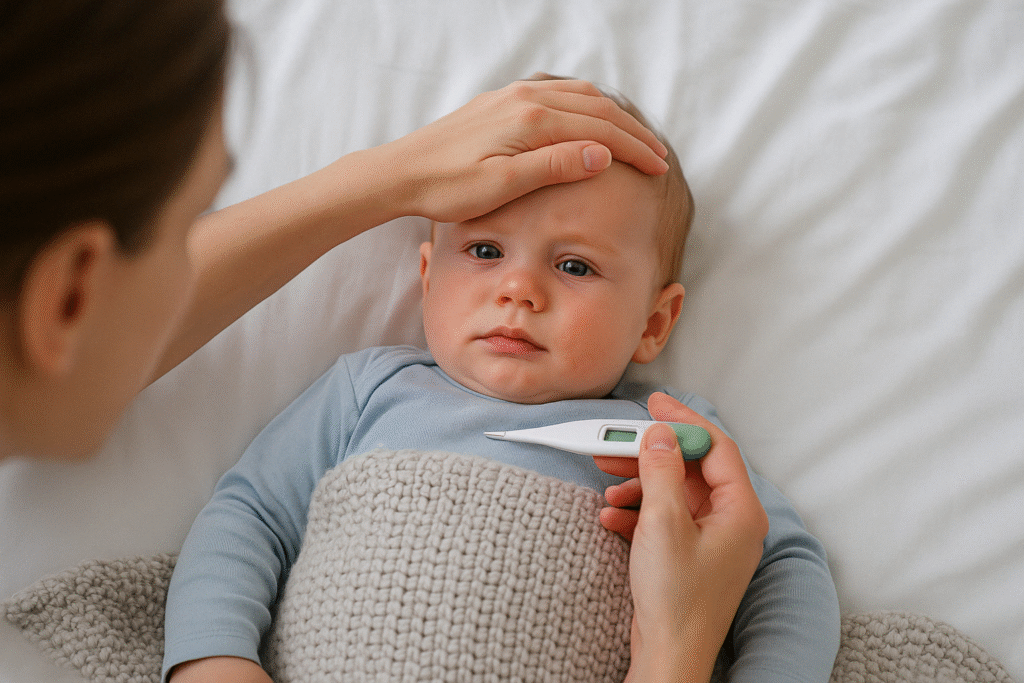

Introduction – dehydration in toddlers
Dehydration in toddlers is more common than many parents realize. Because young children have smaller bodies and higher fluid needs, they can become dehydrated quickly — especially during illness, heatwaves, or when they’re not eating or drinking enough. In Canada’s climate, from cold winters with indoor heating to hot summers, dehydration can sneak up fast.
Recognizing the early signs is key to protecting your toddler’s health and avoiding unnecessary medical complications. In this guide, we’ll explore the most common symptoms of dehydration, what causes it, when to seek help, and how to manage and prevent it at home.
Why Toddlers Are at Greater Risk
Toddlers are more vulnerable to dehydration than older children and adults for several reasons:
- Their bodies have a higher percentage of water
- They may not communicate thirst clearly
- They lose fluids faster through sweat, urine, and breathing
- Common illnesses like vomiting, diarrhea, and fever lead to rapid fluid loss
In Canada, indoor heating during winter can also dry out the air and increase dehydration risk without parents noticing.
Common Causes of Dehydration in Toddlers
Several factors can lead to dehydration in toddlers, including:
- Viral or bacterial infections causing vomiting or diarrhea
- Fever, which increases body temperature and fluid loss
- Not drinking enough fluids during illness
- Excessive sweating during hot Canadian summers or due to overdressing in winter
- Certain medications (like antihistamines or diuretics)
Warning Signs of Dehydration in Toddlers
It’s crucial to spot the symptoms early. Here are the most common signs of dehydration in toddlers:
- Dry mouth and lips
- Sunken eyes or soft spot (fontanelle)
- Fewer wet diapers (less than 3 in 24 hours)
- No tears when crying
- Lethargy or unusual drowsiness
- Irritability or fussiness
- Cool, mottled skin
- Rapid breathing or heart rate
If your toddler shows multiple signs at once, it’s important to act quickly.
Dehydration in toddlers – When to Seek Medical Help
Some cases require immediate attention. Contact your healthcare provider, walk-in clinic, or call Telehealth Ontario if your toddler:
- Has severe diarrhea or vomiting lasting more than 24 hours
- Is unable to drink or keep fluids down
- Is less responsive than usual
- Has a dry diaper for more than 6–8 hours
- Appears confused or excessively sleepy
- Has a fever above 39°C (102.2°F)
Don’t hesitate to visit an emergency department if you’re unsure. In Canada, timely care makes a big difference in outcomes.
How to Treat Mild Dehydration at Home – dehydration in toddlers
For mild dehydration, home care is usually effective:
1. Offer fluids frequently – Dehydration in toddlers
Use small sips every 5–10 minutes. Water, diluted fruit juice, or oral rehydration solutions (ORS) are ideal.
2. Use oral rehydration solutions (ORS) -Dehydration in toddlers
These are available over-the-counter in Canadian pharmacies. Brands like Pedialyte restore lost salts and sugars.
3. Avoid sugary or caffeinated drinks
Pop, undiluted juice, and sports drinks can worsen diarrhea.
4. Continue feeding
If your toddler is still breastfeeding or formula-feeding, continue. Food provides fluid and energy.
5. Monitor closely
Watch for improvement: more wet diapers, better mood, return of tears.
Prevention Tips for Canadian Parents
Prevention is always better than cure. Here’s how to avoid dehydration before it starts:
- Encourage drinking water regularly, not just when thirsty
- Use humidifiers in winter to counteract dry air
- Offer fruits with high water content like watermelon, oranges, or cucumbers
- Dress appropriately for the season — avoid overheating
- Rehydrate during and after illness proactively
- Watch for early signs when your toddler has a fever or tummy upset
Helpful Canadian Resources
- Health Canada – Infant and Toddler Health
- Telehealth Ontario – free 24/7 phone support
- Caring for Kids – Canadian Paediatric Society
These resources provide trustworthy advice and emergency guidelines specifically for Canadian families.
Internal Link
Check out our guide: How to Reduce Fever in Children
Conclusion
Dehydration in toddlers can escalate quickly but is usually manageable with early detection and care. Knowing the signs, offering fluids promptly, and understanding when to see a doctor will help you keep your child safe and healthy. As always, trust your instincts — and if something feels off, don’t wait to act.
Disclaimer
This article is intended for informational purposes only and does not replace professional medical advice. If you have concerns about your child’s health, contact a licensed healthcare provider in your area.
👉 Want more expert care and health tips from trusted sources? Check Here.
Ping : When to See a Doctor for Sore Throat - Maple Medica